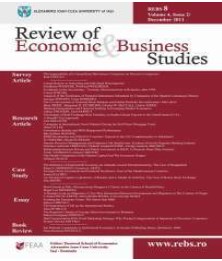DOES FORMAL EDUCATION AT ALL LEVELS CAUSE ECONOMIC GROWTH? EVIDENCE FROM GREECE
DOES FORMAL EDUCATION AT ALL LEVELS CAUSE ECONOMIC GROWTH? EVIDENCE FROM GREECE
Author(s): Panagiotis PEGKAS, Constantinos TsamadiasSubject(s): School education, Higher Education , Economic development, Human Resources in Economy, Socio-Economic Research, Sociology of Education
Published by: Editura Universităţii »Alexandru Ioan Cuza« din Iaşi
Keywords: formal education levels; human capital; enrolment rates; economic growth; VAR; Greece
Summary/Abstract: This study empirically investigates the link between the levels of formal education and economic growth in Greece during the period 1960- 2009. The paper applies the Lucas approach (1988) and employs cointegration, error-correction models and estimates the effect of each educational level on economic growth. The empirical analysis reveals that there is a long-run relation between educational levels and gross domestic product. The overall results show that secondary and higher education has had a statistically significant positive impact on growth, while primary has not contributed to economic growth. The findings also suggest that there is evidence of unidirectional long-run causality running from primary education to growth, bidirectional long-run causality between secondary and growth, long-run and short-run causality running from higher education to economic growth.
Journal: Review of Economic and Business Studies (REBS)
- Issue Year: 2015
- Issue No: 15
- Page Range: 9-32
- Page Count: 24
- Language: English

